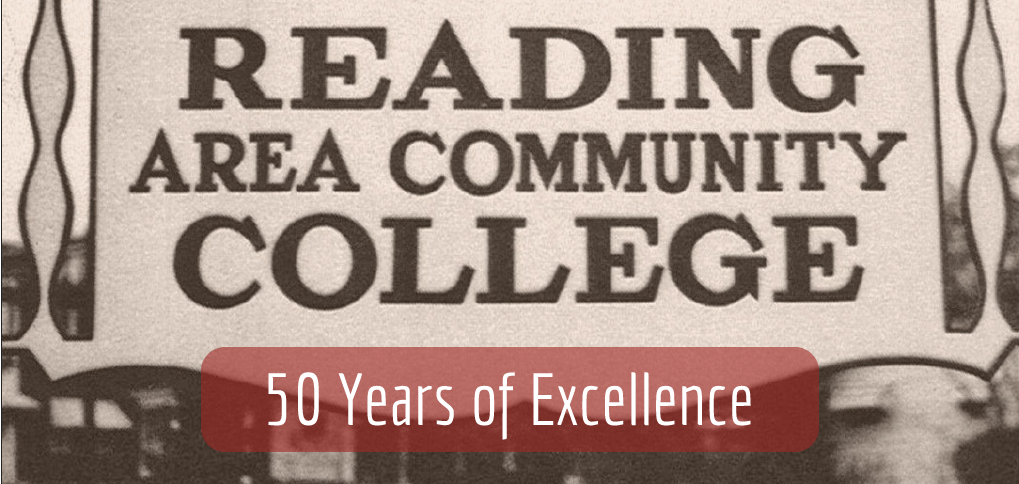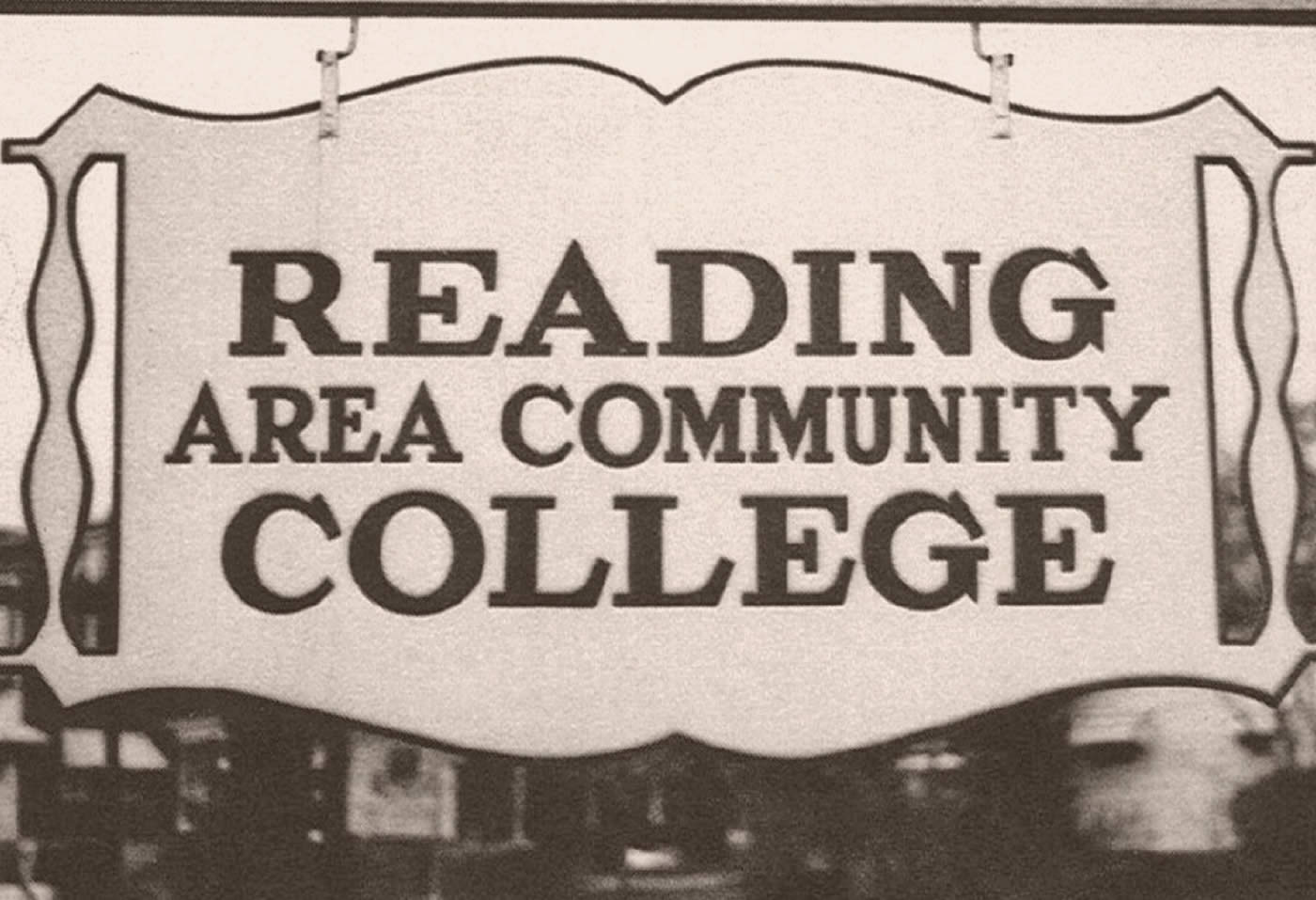Associate Vice President for Community & Academic Partnerships, Reading Area Community College
What brought you to RACC?
I was encouraged by my teachers to go on to go on to college immediately, but that wasn't necessarily something that was a value in my family. My family were blue collar, demolition, construction, automotive. My uncle still has a business 60 years later. The pathway to college was not necessarily one that was understood by my family, so it was get out and get to work. My youngest sister went to college and teaches sixth grade in the Twin Valley School District, but my other siblings have all gone the pathway of a trade.
After leaving home I met my husband, he finished school at Johnson and Wales, and we got married. At that time education was not my primary concern but making a living was. I was bartending for DuPont’s private dining rooms. It was early 90s and DuPont was going through a lot of restructuring. I was promoted out of the private dining rooms into their training and development area. I worked in their training and development center for about seven years. After I had my second child, I said if I can work from home and come into the office one day a week, I'll be back. So, I worked from home - first woman to work from home there. I would say my corporate education was just as valuable as my classroom education.
My kids were very small at the time. They were two and four and even working from home and all of that it was just a rat race. At this piece of my story my niece got sick with leukemia and when she was just about nine years old they did a stem cell operation on her and she actually ended up passing away. Every decision I've made has been either like seeing an opportunity and say “yes” I'll go through that by faith. Secondly, it's like I'm making sure every move that I made was putting my kids in a better position to get them a better education. So, it made sense at that time on wanting to be closer to family. Having just lost our niece, and wanting to get the kids back into good schools, is what brought me back to Berks County. We knew that once the kids were in school that I would go back. It was my turn to go back and get my education.
When I gave up the corporate job, I was in a position where people needed a bachelor's degree and I didn't have one. So that was again one of those things that if I stepped out I knew that I couldn't step back in. So, in stepping out, I did hear from my siblings particularly my older siblings, that I was dropping out. To my family going to college was not hard work. That's why I really do understand the students here because there isn't a real deep connection to understanding the work of college. So, first day of classes I’m scared nervous. I was a non-traditional student so I had no idea what I was doing. Similar to a lot of our students, we are afraid to ask because I figured somebody would say you should have known this.
How did your experience at RACC shape your career path?
I tell students even today that that I was born an artist and college taught me to write. I just loved my writing classes. Growing up in a big family you're always vying for attention. And so, getting attention was art. You know, art was something that you could show your mom and she's like “Oh it's beautiful.” No one had time to sit down and read anything. Writing didn't really come into the picture for me although I was always a reader and I always loved, loved, loved library and spent a lot of time hiding away in those kinds of spaces, away from all of it, but art was really the way that I could get my point across to my parents or get them to understand what I was doing. It's hard to show an essay.
At the time, the dean, Dr. Karen Jacobson, saw something in me. Dr. Jacobson saw me and she saw my writing and asked “Have you ever thought about writing?” and I said “No” and I told her exactly what I just told you - that there was no one who had time to read anything that I wrote. That's the moment. I tell students even today that that I was born an artist and college taught me to write. At RACC I was asked to be the editor of the Front Street Journal and of the editor of Legacy. I just was involved in a lot of things, because it was convenient. I could get my kids to school and I could be involved in all these things. I really just immersed myself in being a RACC student. I really got to be a college student here at RACC. In fact, my first year my husband gave me for Christmas a trip to Cancun so that I could have spring break. I was like, the oldest person there. And he thought that he was planning it right but it wasn't the American Spring Break it was the Canadian spring break. I'm not going say anything more because then we're going have to redact it.
So, it was just practical to go to RACC. I had already received a few scholarships through RACC - through the Honors Program helped by Dr. Blakely and through Phi Theta Kappa and Dr. Singleton. They both encouraged me to apply for the Phi Theta Kappa All PA scholarship and I got it. For a young family trying to make ends meet those scholarships made a massive difference. They absolutely did. I can't even imagine for a young family, what that means, when every penny is so critical.
My transition from student to working all over the college doing various things - Enrollment Services, advising, different special projects, as an administrator - one of the patterns that you see there is an overarching idea of improving transitions. From the time that I took on dual enrollment and how that can enable transitions and better the transition to college to the Title V grant work right now which is about really improving the transitions in our admissions and in our advising process.
So, when I transitioned to Kutztown University that first semester it was brutal. It was no one's fault. It was impersonal. I hate to say that about Kutztown University because it wasn't necessarily meant to be impersonal. It was just that RACC had become very personal and still is. Doors are open everywhere at RACC. The doors are open and people are coming through and people are talking to you. That was true of students like me and my experience was that I could go to a faculty office and they were there. That I would be able to connect.
I had done a paper that found that 53% of the students here on the RACC campus were adult learners. When I went up to Kutztown, I was part of the 8% of the population of adult learners. So that first semester was really hard. Being a member in that classroom where the audience was part of that traditional life in the residence hall, 18 to 21-year-olds, you know, and I'm like, not relating here, not relating. And, of course, I made my way and I end up having a great experience at Kutztown University but it certainly at the time was not built for the 8%. It was built for the 92% of the kids that were there. So, the RACC experience shaped my career, even during Kutztown. The key element there was that the doors were open.
Dr. Jacobson called me and offered me a job teaching technical writing just because of my corporate background and having written those kinds of documents. When I first walked into a classroom for as a faculty member, now talk about full circle, you know, it was awesome. This is where I want to be. It just felt right. Teaching was absolutely the goal.
Dr. Weitz called me in and she said I really like to make you an offer to take over the dual enrollment program. I had very little context, other than Dr. Jacobson had pulled me into her office and said not to be worried if the president contacted me and I'm like now I'm worried. So, to be called into Dr. Weiss his office is definitely a formidable experience. I was called into her office and asked if I wanted this opportunity. That was a benchmark moment for sure.
What advice/insight would you give to current RACC students?
When I was in the classroom teaching writing, I'll tell you a story of this one woman, brilliant and had already survived so much, and, and she was and she was doing great on our papers, she's a beautiful writer. And now, Monday class and she's looking at me and she's like I gotta quit. And I'm like you can't quit. She's like you don't get it, I had to quit. And by then I knew her story and her husband. His forte was to work on hot rods, like he would go and he would fix up these old cars and of course, I can relate to that. And he would he make a lot of money and that's how they survived. So, she’s sitting in the car with her kids working on a laptop, and he's yelling at her because he needs help wrenching this part out, because he doesn’t want her to go to college, he doesn't want her to spend the time that it takes to write a paper because it doesn't look like work. I told her to go home and tell him that the same way that he is wrenching out that part from deep inside that engine is the same way that you're wrenching out an idea to go on that paper and it's going to take time. She stayed. She stayed. But again, it's just one of those stories how we change people's lives is because we've lived that story. And it's those moments that could be the difference.
One of the messages that I used to tell students was, and it's going to sound like a cliché, if someone that you believe in, that you admire, looks at you and says, I think you can do this, that opportunity presents itself. Take their faith. Take your own and go for it. That's cool when the opportunity presents itself, someone believes in you. That's cool. I think that there's an old expression about keeping the bird in the hand rather than the bird in the bush. And so, Berks County is very bird in the hand. I'm the bird in the bush.
2021 marks RACC’s 50th Anniversary. What message would you like to pass on to President Looney and the RACC Community on this historic occasion?
I would say that, that the message that I just gave you is about opportunity. I don't want to let students down, but I don't want to let their vision down. People see opportunity, they're like, oh she got the opportunity. No, I did the hard work to get to that opportunity. And then I did the hard work again to make that opportunity into something. I'm very appreciative of the opportunity. And I know that my story is among many stories of RACC graduates here that work for this college that believe in the mission of this college. We really are the backbone of this institution.


